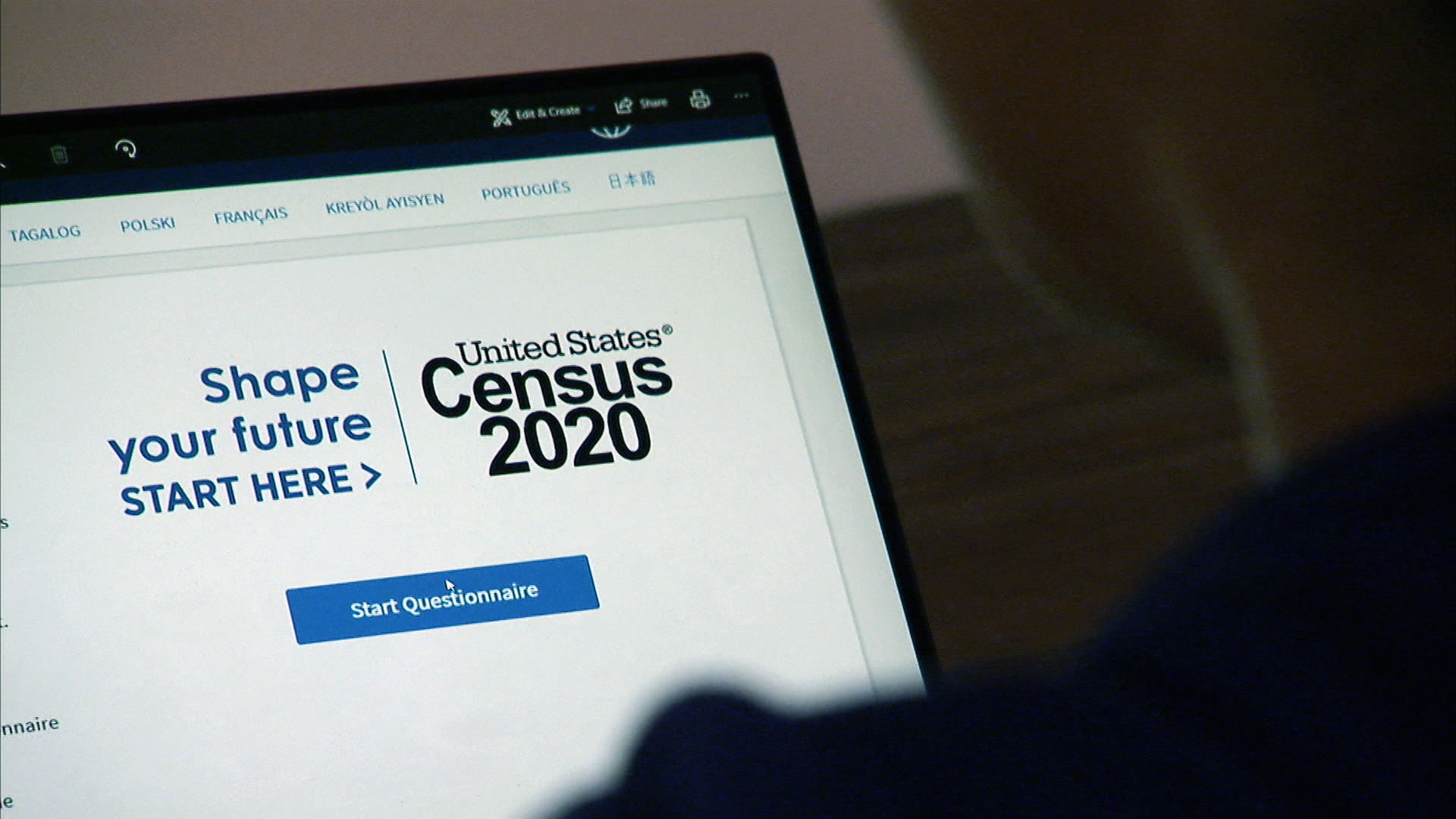Census Bureau Wants People to Respond Online Amid COVID-19 Pandemic
The agency still plans to send census takers to contact people who haven’t responded by the end of May.

The U.S. Census Bureau is suspending field operations until April 1, 2020 due to the coronavirus pandemic. Director Steven Dillingham says the agency will wait until late May to send census takers out to visit households that haven’t responded to the census by then.
“We want to get everyone to self-respond.” — Steven Dillingham, U.S. Census Bureau director.
The bureau has also delayed the start of public events to help people fill out their questionnaires. All of this comes amid efforts to boost Detroit’s response rate, which was one of the lowest in the nation in 2010. Dillingham says he was working with local leaders, churches, nonprofits and neighborhood groups before the pandemic.
Take the Census Online Here
“I went to a very popular doughnut shop, and it was decided then and there that would be a great location to make sure that we have people to help people submit their information for the 2020 census,” Dillingham says.
The pandemic has made such gatherings impossible. Michigan Gov. Gretchen Whitmer’s emergency orders forbid public gatherings of more than 50 people. Doughnut shops, restaurants and similar establishments are only open for take-out, drive-through or delivery, but sit-down service is not allowed until further notice.
Dillingham says this is the right time for people to fill out their census forms online, by mail or by phone.
“We want to get everyone to self-respond,” Dillingham says. “It saves the taxpayers dollars, it’s more efficient, and it also gets around any health concerns people may have.”
Click on the player to hear Pat Batcheller’s conversation with Steven Dillingham, and read a transcript, edited for clarity, below:
Pat Batcheller, WDET 101.9 FM: This is the first census to be conducted primarily online. How will that work? What do we have to do?
Steven Dillingham, U.S. Census Bureau director: It is a very exciting and historic time for us. You know, the census comes around every 10 years. But this will be the first census where the people answering the questionnaires can do it online, they can do it by phone, or they can simply mail it in. So they have three options. And our research indicates that most people will select the internet option.
What steps have you taken to ensure that the information we provide electronically is secure and isn’t going to be hacked?
I can tell you that we have very secure systems. We’ve worked with the people that that do this, the leaders in the industry, as well as in the federal government to make sure that we have safeguards in place. We have various layers of protections and redundancies and mitigation strategies. And we’ve been working on this for several years. We’ve tested it thoroughly.

Not everyone has internet service, of course, how do they participate?
Well, again, if you don’t have internet service, you may have access to a local service provider, such as the library. There will be special events at the recreation centers and other locations where people can get access to the computers if they want to use the internet. If they have access to someone’s smartphone, they can do it by internet. You can call up our questionnaire assistance centers. And they will also walk you through it. They will take your information if you would like. And then if we don’t receive your response by the internet, or by phone, we will mail you a questionnaire.
Detroit had one of the lowest response rates in the 2010 census. A lack of internet service in some neighborhoods was one reason. WDET has been reporting on the amount of money that’s at stake for Detroit and all of Michigan, which get federal money for important social programs based on census data. What are you doing to reach those hard to count areas of the country and boost response rates?
When I was in Detroit, we went out to some of those communities and we went out with the city leaders and with some of our partners. I went to a very popular donut shop, and it was decided then and there that would be a great location to make sure that we have people to help people submit their information for the 2020 census. And then of course, if over time, if we don’t receive the information, we do have census takers that will go into those neighborhoods, they will knock on doors, we will do it in a very health conscious and health-safe way. So we will be reaching out to the hard to count areas. And we will be working with partners. Detroit has some great partners that made a major investment, very dedicated groups. I’ve been to some of the recreation centers and other areas where they intend to reach out to the communities and make sure that everyone is counted.
Some people don’t answer the census because they don’t trust the government. They’re afraid the information might be used against them somehow, or maybe they just don’t want to share personal information. What do you say to those folks to ease their concerns?
Well, I think you pointed out a very important factor there, and that is the trusted voices in those communities. So even though we will have extensive information on television, radio, billboards and at events, it’s very important that the people they know and respect are also reinforcing that message of how easy it is, how safe it is, and how important it is to that community. It isn’t a federal government census. It’s really the nation’s census. As I say, it’s everyone’s census, and everyone has a stake. So we’re counting on everyone to work together and make sure that we get everyone counted. We do have more than 325,000 complete count committees that stretch and actually reach into almost every household in America. In Detroit, we have churches, and other places where people go and maybe receive their services that will be assisting in partnering with us.
Even though you’re focusing on the online mail and telephone efforts, you do still need as you’ve hinted people to work for the Census Bureau and actually go out and talk to people who don’t respond right away. You’ve been advertising jobs with the bureau. Do you have enough people yet? And if not, how will that affect the count?
Well, we have met our ambitious goals, but we’re still recruiting. We still want more. We’ve actually had 2.7 million-plus people complete their applications. We’re hiring more than 10,000 a day. And we’ll be doing it for a period of weeks. So if anyone is still interested, we strongly encourage you to go online and submit an application. We really prefer to hire people from the communities in which they live.
How has the coronavirus pandemic affected the census? Could it hinder your door to door efforts?
Well, it’s possible that we would have to adapt to some new requirements in the door-to-door efforts. But that’s all the more reason that we want everyone to self-respond by those three options, the internet, the phone, or by mailing. There is no safety factor to those three. And again, they can be done in the convenience of the home. But in the event that some people do not self-respond, we still will be using the census takers to go through the neighborhoods, and we will adapt to the necessary health practices. We’re monitoring it each and every day with a federal, state and local officials. And we will have a very safe way in which we can still count the people that have may not have self-responded.
At a recent congressional hearing, Rep. Rashida Tlaib asked why there’s no box on the census form for people of Middle Eastern or North African descent. She includes herself and many of our constituents in that category. And they’re concerned that Arab-American communities — and we have a large one here in Metro Detroit — might miss out on federal funding and representation. Why is that category not been included yet? Could it be available on the 2030 census?
Well, that’s a very important question. And that is something that has been studied will continue to be studied. And what we do have now is a write-in. People can write in the group that they identify with, and we encourage people to do that. You can do it on the internet, you can do it on the form, and you can do it by phone. So we very much encourage that. We continue to look at it and consider that certainly for the next dicennial census. but For people that have information like that, and or that may want to apply for a job, we encourage them to go to 2020 census.gov. If they go to that website, they can learn about it. And they can learn particularly, they can see a sample form and see where they can write in the group that they would like to identify with.
Anything you’d like to add?
We want to get everyone to self-respond. It saves the taxpayers dollars, it’s more efficient, and it also gets around any health concerns people may have.
